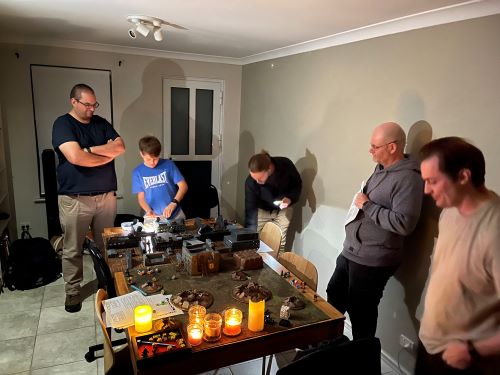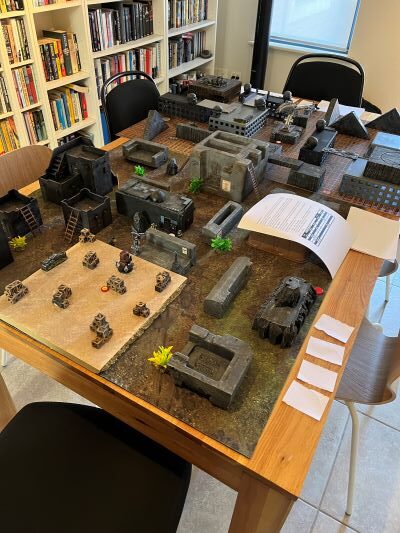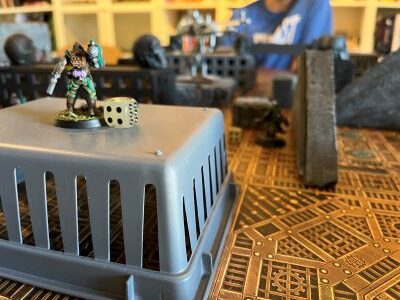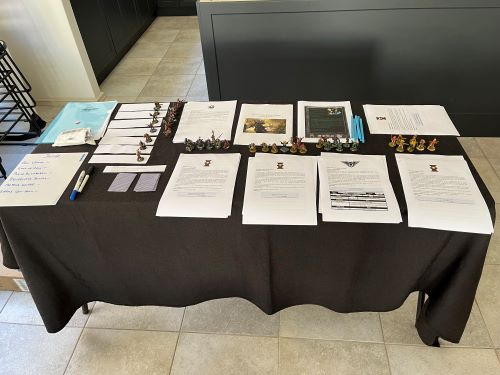Embarking on the journey of writing your first Dungeons & Dragons (D&D) adventure can be a little daunting. As a new Dungeon Master (DM), it’s important to remember that your adventure doesn’t need to be epic in scale. Running a hugely complicated world spanning odyssey can be incredibly taxing, especially for the inexperienced. Instead, I recommend creating a small, manageable, and fun experience for you and your players. Here’s how to get started:
Start Small
When designing your first adventure, it’s tempting to create a sprawling epic filled with intricate plots and vast landscapes. often, these try to emulate favorite books, movies and tv shows. Can you imagine the amount of work to recreate the intricacies of Game of Thrones or the epicness of Lord of the Rings. It’s exhausting just thinking about it! However, starting small can be more manageable and equally enjoyable. A single town, a mysterious forest, or a haunted mansion can provide ample opportunities for adventure without overwhelming you or your players.
Benefits of Starting Small:
- Manageable Preparation: A smaller scope means less prep work, allowing you to focus on quality over quantity.
- Player Engagement: It’s easier for players to get invested in a smaller, more intimate setting.
- Flexibility: Small adventures can adapt and expand based on player actions and interests. As such, they may turn into that huge sprawling epic that you’ve always imagined, over time.
Have a Clear Task
A clear, simple objective is key to a successful adventure. Your players should know what they need to accomplish and why. This doesn’t mean the adventure lacks depth, but rather that the core goal is straightforward.

Examples of Clear Tasks:
- Retrieve a stolen artifact.
- Rescue a kidnapped villager.
- Investigate strange happenings in the local graveyard.
This lack of ambiguity helps keep the adventure focused and gives players a clear sense of purpose. It also makes it easier for you to guide the narrative and keep the story on track.
Introduce a Memorable Villain
A compelling villain can elevate your adventure and give your players a clear antagonist to rally against. Your villain doesn’t need to be a world-ending threat; a cunning bandit leader, corrupt town official, or rival adventuring party can be just as engaging.
Tips for Creating a Memorable Villain:
- Distinct Personality: Give your villain unique traits and quirks that make them stand out. Perhaps they are overly polite even when doing the most terrible acts, or they are obsessed with cleanliness.
- Clear Motivation: Understanding why your villain is doing what they do helps create a more believable and engaging antagonist. Perhaps the villain wants revenge, is power hungry, or following a misguided obsession.
- Presence: Ensure your villain has a noticeable impact on the story, whether through direct confrontation or the consequences of their actions. A good way to do this is to present rumors to the players at the beginning of the game. Some true, some not, all alluding to the villainous nature of the enemy.
Professor Dungeon master has some great tips on making villains in this video. Definitely worth a quick watch.
Encourage Teamwork
D&D is a collaborative game, and encouraging teamwork among your players is crucial. Design encounters and challenges that require players to work together, leveraging each character’s strengths.
Ways to Encourage Teamwork:
- Diverse Challenges: Include a variety of obstacles that cater to different skills (combat, puzzle-solving, diplomacy). To really ramp up the challenge why not combine two of these. Solving a puzzle during a combat creates time pressure that can really enhance the excitement of the session.
- Shared Objectives: Ensure the task requires collective effort, making it difficult for any one player to succeed alone. Perhaps the fighters need to hold off the magical golem while the mage and rogue negotiate with the gnarled hermit to open the door to safety.
- Reward Cooperation: Recognize and reward instances where players work together effectively. This can be as simple as calling out the group when they work well together, or rewarding them with in-game advantages as the gods smile at their cooperation.
Keep Your First Adventure Manageable
Remember, your adventure doesn’t need to be a grand epic to be enjoyable. A small, self-contained story can be incredibly satisfying and leave players eager for more.
Keeping Scope Manageable:
- Limited Locations: Focus on a handful of key locations rather than an entire world.
- Concise Story: Aim for a story that can be completed in one or two sessions.
- Avoid Overcomplication: Keep plots and subplots simple and easy to follow. While you may think this is too simple, remember, players add their own layer of complication.
Final Thoughts on Writing your First Adventure
Writing your first D&D adventure is about creating a fun and engaging experience for you and your players. By starting small, introducing a memorable villain and giving the adventure a clear objective, you can craft an adventure that is both enjoyable and memorable!





